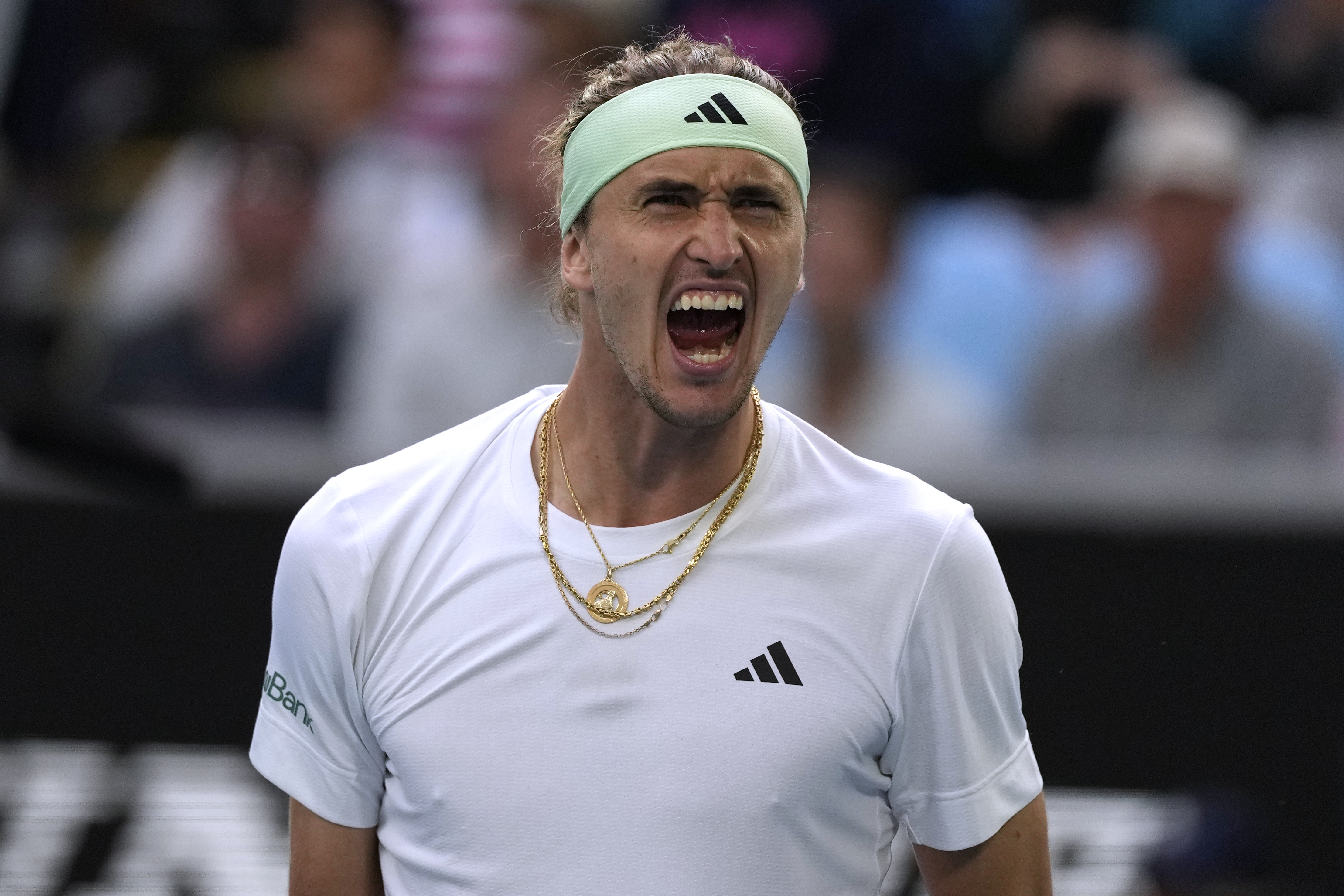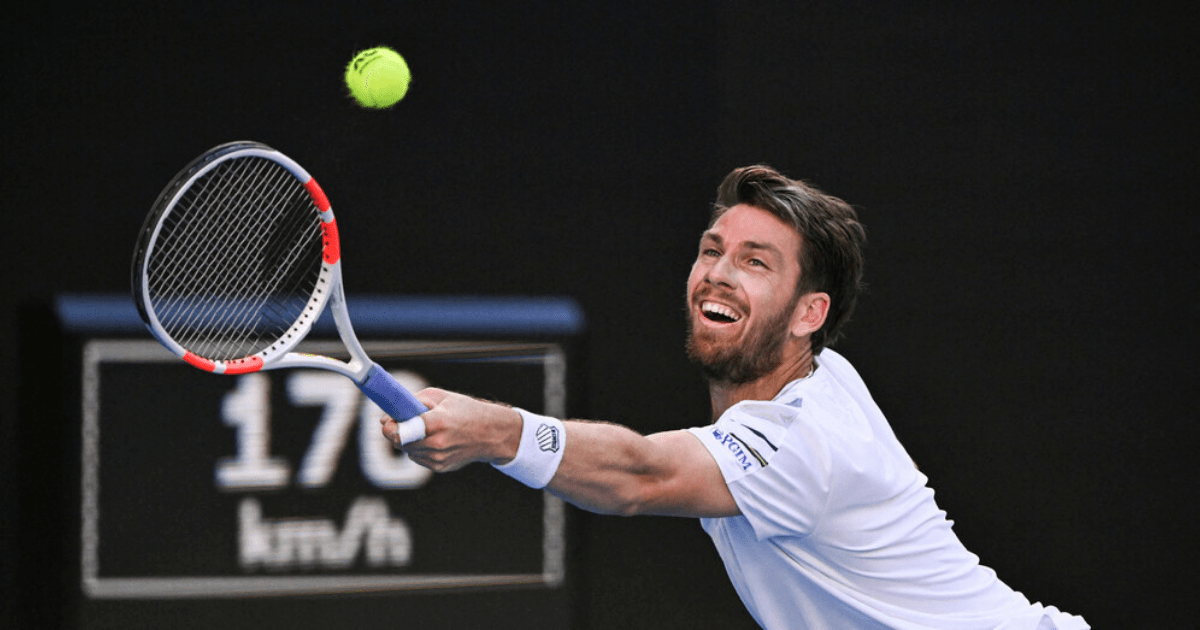British tennis player Cameron Norrie has been eliminated from the Australian Open after a hard-fought fourth-round match against Alexander Zverev. The Brit lost in a five-set thriller that lasted over four hours, with the final score being 7-5 3-6 6-3 4-6 7-6(10-3) in favor of his German opponent.
Norrie's Impressive Run Comes to an End
On his way to the fourth round, Norrie had a strong showing, defeating Juan Pablo Varillas in straight sets and staging a remarkable comeback against Giulio Zeppieri. After being down two sets against the Italian, Norrie fought back and secured a 3-6 6-7 (4-7) 6-2 6-4 6-4 victory. He followed it up with an impressive win against world No11 Casper Ruud in the previous round.
A Tough Battle Against Zverev
Despite a valiant effort, Norrie's hopes of reaching the quarter-finals were dashed by Zverev. The match saw a back-and-forth battle, with Zverev taking the opening set and Norrie bouncing back to win the second. The third set was briefly interrupted by a pro-Palestine protester, causing a temporary pause in the match. Norrie managed to win the fourth set, but Zverev ultimately prevailed in the decider, winning by a tie-break.
What's Next for Zverev?
Zverev's victory sets him up for a quarter-final match against either Miomir Kecmanovic or Carlos Alcaraz. Looking ahead to the match, Zverev expressed admiration for his potential opponents and highlighted Alcaraz's young age and success. He hopes to continue his strong performance and advance further in the tournament.

Stay tuned for more updates on the Australian Open as the competition heats up!
Frequently Asked Questions
Can someone play tennis late and become a professional player?
Although it’s more difficult, it’s not impossible to achieve professional status by starting tennis later in life. The success of an individual will be determined by their athletic ability, work ethics, dedication and the availability of quality coaching and competition. Late starters must engage in intensive, highly-focused training. While the path is likely to be longer, with talent, perseverance and dedication, achieving a professional standard is possible.
What type of fitness is necessary for tennis players?
Tennis is an intense sport that demands a combination aerobic endurance, anaerobic strength and power, as well as speed. Fitness training for tennis players often encompasses cardiovascular exercises to improve endurance, plyometric and explosive exercises for speed and power, weight training for strength, as well as agility drills to enhance footwork and on-court movement. Core stability exercises and balance training also play an essential role in building the muscular endurance and coordination necessary for managing the physical demands of the sport.
How can a player of tennis balance training and school requirements?
For aspiring tennis athletes, balancing intense training and academic commitments can be a challenge. The ability to manage time, prioritize, and create a schedule that works for you is essential. Online schooling and flexible academic programs can help accommodate the demanding training and travel schedule of young athletes. Families, coaches and educational institutions can also play a vital role in helping athletes achieve their athletic goals without compromising their studies.
How important are mental and psychological factors in tennis training for you?
Tennis requires mental and psychological training as much as physical training. Players must learn to manage stress, maintain focus, and handle the emotional highs and lows of competition. Many players use techniques such as mental rehearsals, visualization and goal-setting. A sports psychologist can assist players in building resilience, developing coping strategies to deal with pressure, and elevating their mental game so that it matches their physical prowess.
What age should a young player start training in order to be a professional footballer?
Starting early in training is an advantage. While there’s no standard age to begin professional tennis, it is a good idea. Most professional tennis players start training between the age of 4 and 7 years old. Early development is crucial for players to develop a solid base of skills, coordination, and technique. To foster a passion and love of the game, it is important to balance training with normal childhood development.
Statistics
- On average, it’s estimated that only 1 in 5000 high-level junior tennis players will develop into internationally ranked professionals.
- Research indicates that junior tennis players who compete in international tournaments gain significant psychological advantage and experience, with participation leading to a 50% better transition into professional rankings.
- Approximately 70% of a professional tennis player’s training time is devoted to developing technique and on-court strategies.
- Studies show that superior agility and speed among tennis players can reduce their reaction time by up to 30%, which is crucial during high-level matches.
- Statistical trends indicate that top tennis players usually have at least 5 people in their support team, including coaches, fitness trainers, and physiotherapists.
External Links
tenniscompanion.org
- Tennis Companion Practice Drills
itftennis.com
tennisfitness.com
wilsontennis.com
myprocoach.net
How To
How to Choose the Right Tennis Equipment For Professional Training
Tennis equipment selection is crucial for professional development. Firstly, invest in a high-quality racket that complements your play style – whether you’re an aggressive baseliner, a serve-and-volley player, or an all-rounder, your racket should amplify your strengths. Make sure your racket has been strung with the appropriate tension. Tennis shoes need to be supportive and stable. They should also fit the surface on which you are most likely to play. Wear moisture-wicking, breathable clothing to keep comfortable throughout long training sessions. Do not overlook accessories like overgrips or dampeners. A tennis bag will also help you organize your equipment.

